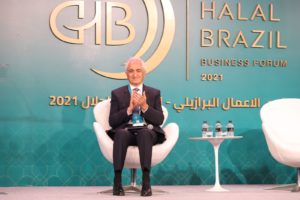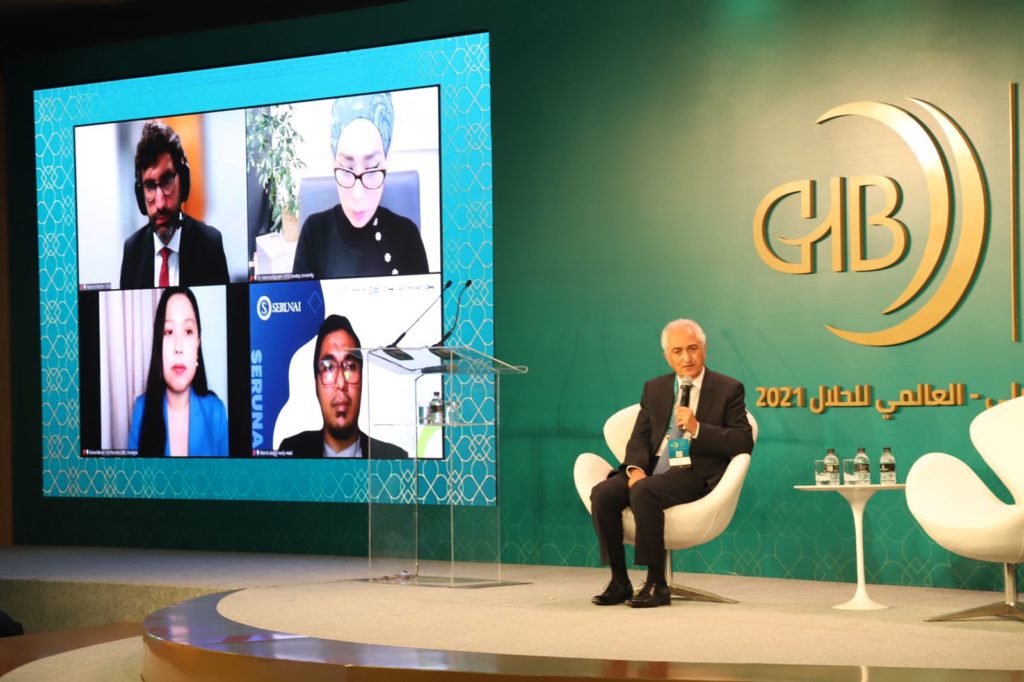São Paulo -The COVID-19 pandemic has worsened social and economic gaps in Brazil and elsewhere. So said Dr. Riad Younes, Marketing vice president of the Arab Brazilian Chamber of Commerce (ABCC) during the panel “Assessment of the COVID-19 Impact on the Main Markets and Analysis of Competitiveness and Innovation in Halal” on the first day of the Global Halal Brazil, the first halal forum in Brazil, held by the ABCC and the Federation of Muslim Associations in Brazil (FAMBRAS Halal).
He spoke about how the public healthcare system will probably receive investments on a global scale, as without it, the world wouldn’t have overcome the pandemic crisis. He added that the healthcare sector was affected regarding the medical care for both chronic and treatable diseases, and that we need more healthcare professionals, as many were lost while working in the front lines fighting the disease.
“The treatment for chronic diseases was slowed down. Patients aren’t doing their check-up exams for an early treatment of severe chronic diseases, and the mortality that had decreased sharply in the last decades was up again such as from heart attacks as we struggle to handle the deceased because we’re late in the elective treatment due to the ICU occupancy across the world,” Younes said. He said that over the last months, the healthcare system started “cutting down” the waitlist of patients in need of care.

Younes also addressed the impact on patients that were infected by COVID-19 but didn’t die. “That’s what we’re calling ‘chronic COVID,’ patients with extremely severe lung, heart, brain, mental, neural diseases that will overload our healthcare system, too,” the doctor said.
On the other hand, Younes said COVID-19 made it abundantly clear how the whole world needs to focus on public healthcare. “Public healthcare proved to be the only support able to fight this severe disease. It was not he private nor the public-private systems but the public systems that vaccinated, handled the overload of deceased people. So all countries are focusing again on the need for investments and leverage on the public healthcare systems,” he stressed.
The doctor said the scientific research for all chronic diseases, apart from COVID-19, was practically delayed by two years. “This certainly impacts our capacity to have able, healthy people in the short term,” he said.
Finally, Younes said the pandemic will dramatically affect markets even if we stop the spread soon. “In the long term, the impact on healthcare will be too large, from consumers, manufacturers to the lack of doctors and nurses. I believe this’ll have a major impact in the long term in the Arab, Islamic countries, Brazil, and the whole world,” he finished.
Other topics of the panel
The panel featured professor doctor Kamola Bayram of KTO Karatay University (Turkey), OneAgrix CEO and cofounder Diana Sabrain, as well as Serunai Halal Centre of Excellence head Mohamed Jabal Bin Abd Rahim. The moderator was Brazilian National Confederation Industry (CNI) International Integration Policies Fabrizio Sardelli Panzini.
Sabrain discussed the importance of traceability technology via QR code and the need for fast-tracking process digitization for halal foods and the entire supply chain.
Mohamed Jamal showed how the pandemic has impacted all business sectors, particularly in the market, the competitiveness and the innovation of halal products, including halal certification. He believes it’s necessary to implement more technology for certification. Certification processes have gotten slower and certification requests are down. He believes the problem is the contamination of the supply chain like mixing halal and non-halal foods.
Kamola Bayran discussed the impact on the education in Islamic economy.
The forum is supported by the Brazilian Trade and Investment Promotion Agency (Apex-Brasil), BRF, Pantanal Trading, Portonave, and Iceport.
Follow the complete forum coverage:
Read more about the GHB:
- Islamic market returning to pre-pandemic levels in 2021
- Brazil’s Temer: “Halal could go beyond Islamic market”
- Brazil must promote image to diversity exports
- Islamic economics education was impacted by COVID-19
- Apex-Brazil wants to take halal to small enterprises
- Ready-to-eat foods are trend in halal
- Halal: Brazilian food is safe and sustainable
Translated by Guilherme Miranda




